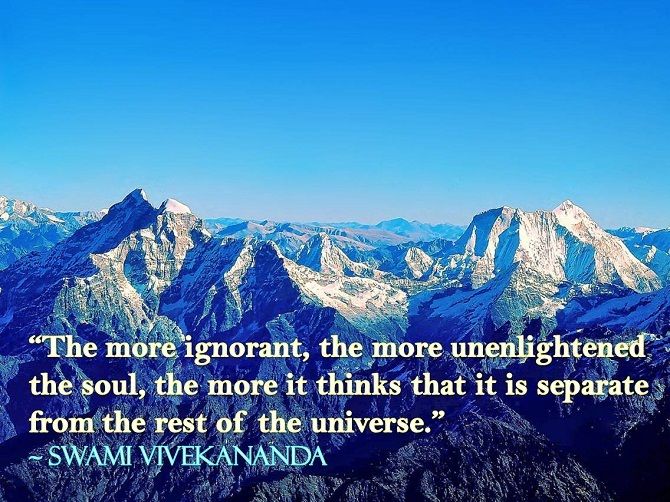| Have Comments or Questions? Click Here | ||
| SSVT presents a handful of questions related to Hinduism in the inauguration of this web page. We expect to update the material each month. We expect to add more questions and answers over the next several months, and build on the current questions as we hear from you. Please take the time to send any other questions you may have or to comment on anything you see on this web page by clicking on the appropriate link above. And if you would like monthly updates emailed to you, please register yourself by sending an email to ssvtedu@yahoo.com with your name and email address. Position Statement: Hinduism covers a vast field, with many differing aspects of faith, varied philosophical systems, numerous paths to follow, and interesting varieties of ritual. There is a popular adage that if you ask the same question to a dozen learned Hindus, you may very well get twelve different answers and all of them would be true. The truth is one, but the wise talk of it in differing ways. Our answers and opinions are given according to our best understanding. 1. Who is a Hindu? 2. Is it necessary to go to a temple or practice anything in any special way to be a Hindu? Can one stop being a Hindu? 3. What is the position of conversion in Hinduism? 4. What are the 4 stages of life recognized in Hinduism? 5. What is “Karma”? 6. What are core Hindu beliefs/principles? 7. What are the different schools of Hindu philosophy? What is their basis to be called different schools of Hinduism? Are they important to understand? 8. What are the sacred texts of Hinduism? 9. Is Hinduism the right name for this religion? How did it get its name? 10. Is Hinduism a religion or a way of life? 11. What is the role of caste in Hinduism? 12. What is the place of women in Hinduism? 13. Who are swamijis? Why do they wear saffron colored robes? Why do some of them shave their heads? 14. What is the place of rituals in Hinduism? 15. What is the sacred thread or Yagnyopavita? 16. Why is a dot or stripe worn on the forehead? 17. For how many years and in what manner are priests trained? 18. What if any are the differences between the Vedic language (of Sanskrit?) and classical Sanskrit of later times? 19. How do Indians traditionally greet each other? What is the significance of greeting with the term “Namaste” or “Namaskaar” or “Namaskaara” or “Namaskaaram” that is used for praying to God too? 20. What is the significance of OM? It seems to be chanted in several places and in many aspects of religious ceremonies? 21. Since Hinduism seems to view every moment in life as a spiritual moment, and every activity as a spiritual activity, can you explain what is so spiritual about working and earning a living or being married? 22. Why do we offer food, clothes, etc. by pouring them in the fire? Is it not better to give them away to the needy? 23. If God is all-powerful and all-merciful, why is there so much suffering in the world? 24. Why do we not wear shoes when we come into a temple? 25. Why are Hindus cremated and not buried? 26. Is Hinduism monotheistic or polytheistic? How many gods are there in Hinduism? What are their places? 27. Who are the authorities that dictate the rights and wrongs of Hinduism? 28. What is Sandhya Vandanam? 29. What is the Hindu concept of space? Is it limited or unlimited? In different places, the scriptures speak of one world, three worlds, seven, fourteen or more worlds, and also several million worlds (Aneka Koti Brahmaandas)? 30. What is the Hindu concept of time? Is time without a beginning, is it cyclic? Can you elaborate on the Hindu Calendar? 31. What is the significance of the choice of vehicles (Vaahanas) like mouse, bull, lion, garuda etc for different deities? 32. Why do we worship animals? Why do some gods have animal bodies or faces? Why do we worship cows? 33. Are there any food restrictions on Hindus? | ||
Hinduism FAQ
Frequently Asked Questions About Hinduism





.gif)


